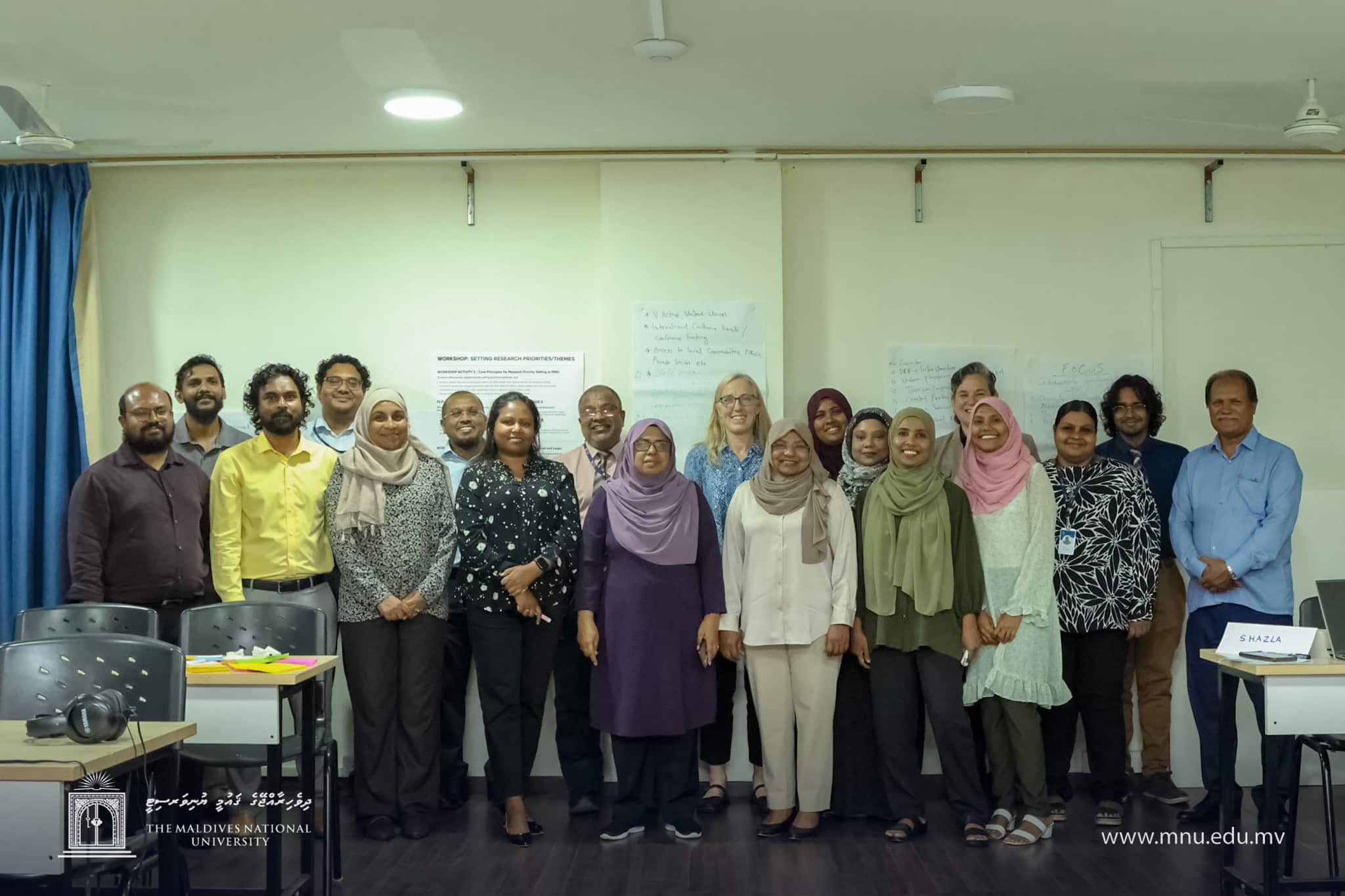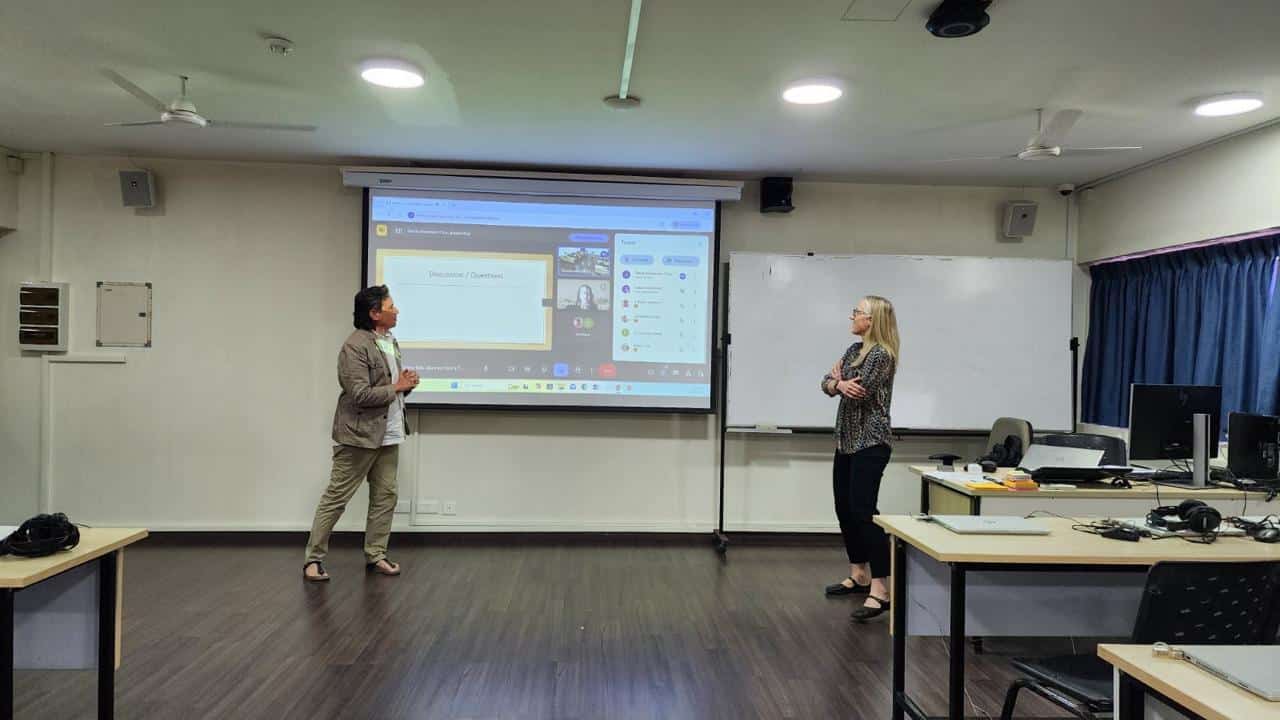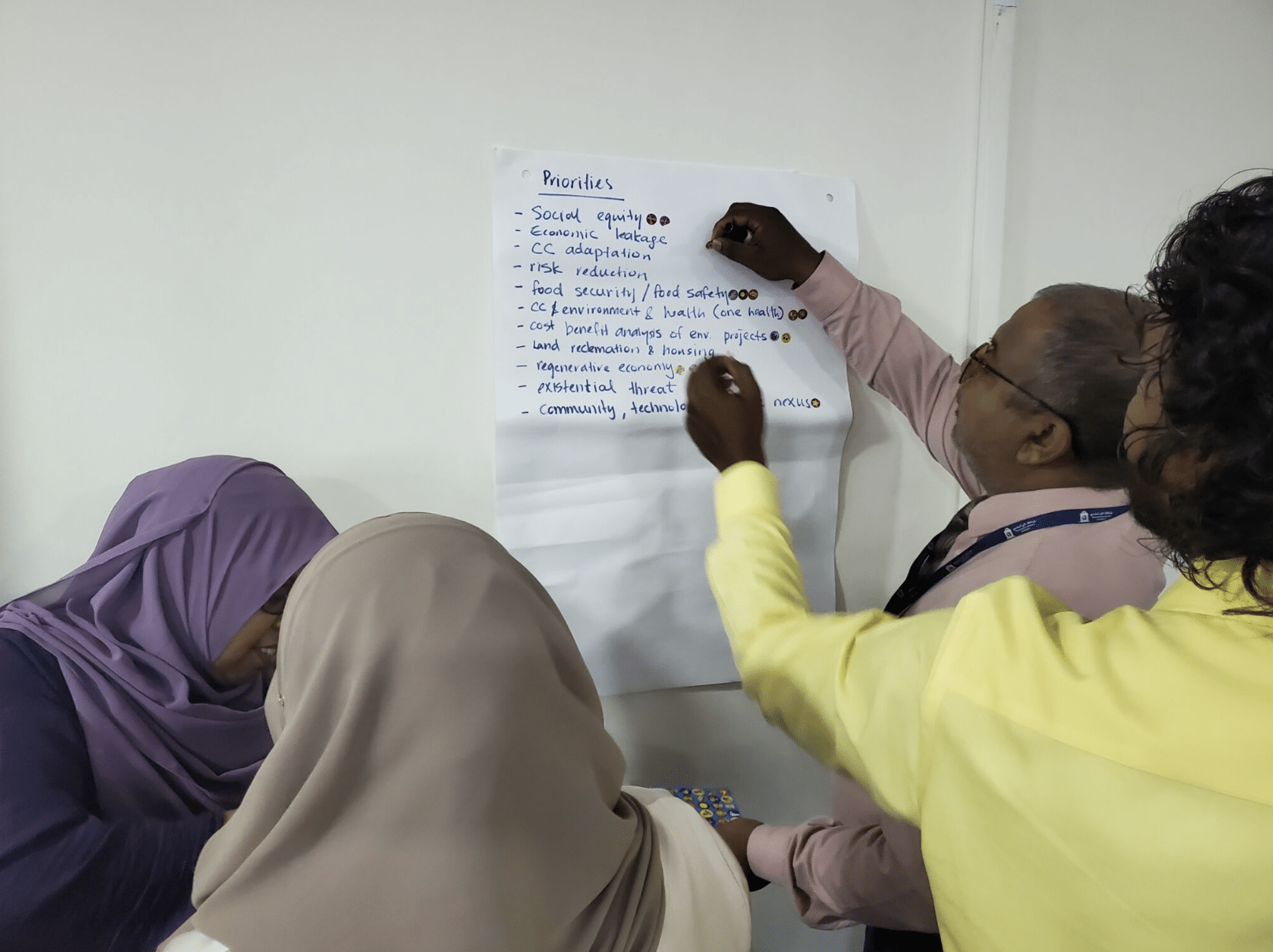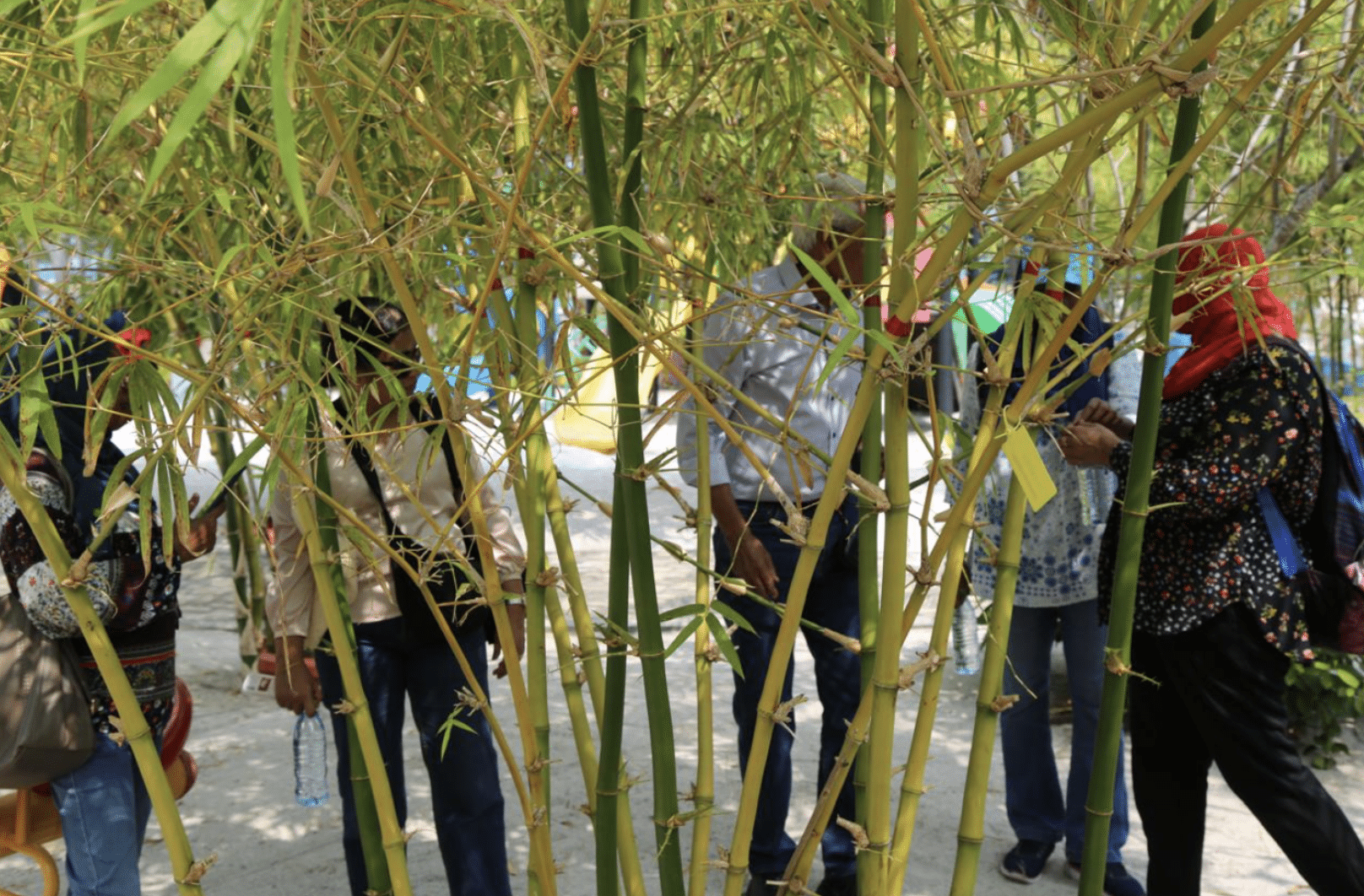
The Technical Assistance Program – Expert Deployment Mechanism (TAP-EDM) initiative, implemented by Alinea International and funded by Global Affairs Canada, works collaboratively with Canadian expert Robin Cox and the Government of Maldives’ Ministry of Environment, Climate Change and Technology (MECCT) and the Maldives National University (MNU) to strengthen the competencies of MNU to research climate change and environmental sustainability for Small Island Developing States (SIDS).
In this blog, written for Resilience by Design, Robin shares her experience on the project and highlights the transformative international collaboration between Canadian experts and MNU, the development of a comprehensive Climate and Environmental Research Framework that integrates Gender Equality and Social Inclusion principles, and how research priorities were co-created with local faculty to address critical challenges including climate-resilient disaster management, water security, renewable energy, and marine biodiversity protection.



Partnering for Resilience: Strengthening Climate Research in the Maldives
By Robin Cox, Emergency Management and Climate Expert
The Maldives, a nation of stunning islands on the front lines of climate change, is mobilizing its expertise to build a more sustainable future. As a low-lying archipelago facing rising sea levels and extreme weather, the Maldives understands firsthand the urgent need for climate action and evidence-based solutions. While the country contributes minimally to global emissions, it faces disproportionate impacts. Recognizing the need for robust, locally driven research, the Maldives National University (MNU) is strengthening its capacity to address this pressing challenge, with support from a unique international partnership.
A Unique International Partnership for Climate Research
The effort is supported by the Technical Assistance Partnership – Expert Deployment Mechanism (TAP-EDM), funded by Global Affairs Canada. This collaboration brings together a team of Canadian consultants, including experts from Royal Roads University (RRU), to strengthen MNU’s research on climate and environmental sustainability.
The team consisted of:
- Dr. Michelle Hamilton-Page and Dr. Robin Cox, from RRU’s Resilience by Design lab, both with extensive experience in climate adaptation and resilience, capacity building, research, and diversity, equity, and inclusion.
- Jenn Hoffman, Principal at Highwatermark and RRU Associate Faculty member, is contributing her expertise in climate change, environment and capacity building.
- Dr. Deborah Zornes, RRU’s Director of Research Services, who specializes in research administration.
- Amber Gallant, RRU’s librarian with expertise in research data management.
This initiative, running from September 2024 to June 2025, was aimed at enhancing MNU’s capacity to conduct policy-aligned, actionable climate and environmental research.
Empowering Universities as Climate Change Catalysts
Universities like MNU play a critical role in preparing decision-makers to address climate challenges. They provide research-based insights to identify and mitigate the effects of climate change. Given the global scale and urgency of the climate crisis, universities must adopt a transformative, integrated approach to research.
At MNU, the goal is to embed climate-focused inquiry across all academic disciplines. This requires a systematic, institution-wide approach, utilizing existing and emerging academic expertise to create a comprehensive, context-specific research framework.
The MNU Climate and Environmental Research Framework: A Roadmap for Action
As part of this initiative, a Climate and Environmental Research Framework 2025-2030 (the Framework) was developed to guide MNU’s future research. This Framework aligns with MNU’s vision, mission, and strategic goals, ensuring that climate and environmental research supports the institution’s priorities.
An essential aspect of this Framework is the integration of Gender Equality and Social Inclusion (GESI) principles in research. This reflects Canada’s commitment to advancing a feminist approach to international development and recognizes the disproportionate impacts climate change has on women and marginalized communities.
The Framework emphasizes:
- Actionable Research: Aligning research with national policies and community needs for practical, effective solutions.
- Inclusive Participation: Promoting gender equality and integrating diverse perspectives in research.
- Building on Local Knowledge: Valuing both traditional knowledge and scientific expertise.
Key Research Priorities for a Sustainable Future
MNU’s ongoing research program on climate and environmental issues has provided a strong foundation for future work. It includes research on key environmental and climate-related issues such as sea level rise, coral reef health, and the potential of natural resources such as the archipelago’s abundant and diverse bamboo species.
Building on that foundation, the process of co-creating the MNU Framework involved faculty and staff from across the university who were already doing climate and environmental research, or who saw the necessity of integrating such research into their disciplinary areas.
Through the development of the Framework, key research priorities have been identified for the coming years:
- Climate-Resilient Disaster Risk Management: Enhancing early warning systems and coastal protection strategies to safeguard island communities.
- Integrated Water Resource Management and Security: Ensuring sustainable access to clean water amid saltwater intrusion and climate variability.
- Renewable and Reliable Energy Security: Transitioning to renewable energy sources and reducing reliance on imported fossil fuels.
- Safeguarding Marine and Coastal Biodiversity: Protecting coral reef ecosystems and other critical natural resources that underpin Maldivian livelihoods and culture.
More than just assistance, a shared responsibility
Why did the Canadian government invest in this partnership? The world faces urgent challenges, including climate change, biodiversity loss, and pollution. Canada understands that supporting climate action in vulnerable countries like the Maldives is part of its global responsibility. This partnership also allows Canada to learn from the Maldives’ experiences, especially regarding adaptation strategies in island ecosystems.
By fostering collaborative partnerships, respecting local expertise, and supporting capacity building, we can work towards a more just and sustainable future for all.
